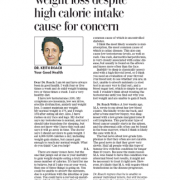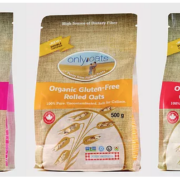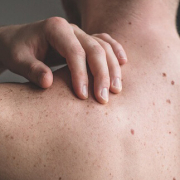Self-Care for Celiacs: It’s not Selfish – It’s Necessary
- Imagine yourself as a wheel, rolling along through life. Now that you’re in Celiac Territory, you will encounter all kinds of hazards that can give you a flat!
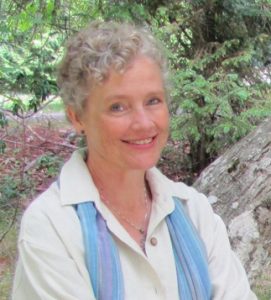
Sherry Scheideman, Celiac, M.A., Registered Clinical Counsellor
- Celiac Counsellor’s Corner* is a place where Sherry Scheideman, M.A., Registered Clinical Counsellor, responds to your questions about the emotional and social issues that celiacs face. Diagnosed with celiac disease herself in 2001 in Victoria, BC, Sherry draws upon personal experiences and a Master’s Degree in Counseling to support you in transcending this ‘life transition’ and turning it into an opportunity to live your best life – ever.
Do you have a comment or question for Sherry?
The Wheel of Self-Care
Celiac Territory is rough. To keep on rolling in Celiac Territory, you need a super-strong wheel. What can you do to fortify your wheel?
World-famous psychologist Virginia Satir saw our wheel like this:

We have to build equal strength in each of the eight parts of our wheel in order to keep it rolling. This is especially important for celiacs, because our terrain is so hazardous.
If, say, the physical part of our wheel is weak because we are over-tired, we may not be able to ‘roll with it’ when our colleagues are all enjoying pizza while we eat a leaf of lettuce. We are much more likely to roll gracefully through Pizza Land if we are well rested.
Following are some ways to build and maintain strength in each part of the wheel. (Many of these self-care ideas may seem to have nothing to do with celiac disease, but in fact they all help us build the strength we need to deal with the disease.)
 NUTRITIONAL: Get help from a naturopath to heal your gut so you can absorb the nutrients in your food; take supplements if you need to replenish depletions; eat healthy food; eat before you get too hungry.
NUTRITIONAL: Get help from a naturopath to heal your gut so you can absorb the nutrients in your food; take supplements if you need to replenish depletions; eat healthy food; eat before you get too hungry.
INTELLECTUAL: Stimulate your mind with good books, movies, conversations, courses, hobbies, etc.
EMOTIONAL: Be aware of your emotions as they occur, noticing how they feel in your body; get help from a counsellor to work through emotional issues; do things that feel good and that you feel good about.
PHYSICAL: Get the sleep you need; get plenty of exercise; be aware of stress and tension as you feel it in your body.
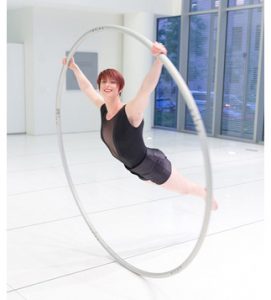 SENSORY: Pay conscious attention to what you see, hear, feel, taste, and smell; get a massage; enjoy aromatherapy; soak in a hot tub; go to a concert.
SENSORY: Pay conscious attention to what you see, hear, feel, taste, and smell; get a massage; enjoy aromatherapy; soak in a hot tub; go to a concert.
SPIRITUAL: Make art or music; dance; meditate; pray; spend time in nature; engage in ceremonies and rituals.
INTERACTIONAL: Associate with people with whom you feel a strong connection.
CONTEXTUAL: Take care of the places where you spend time (such as home, work, and your neighbourhood) so they are as lovely as you can make them.
Think about the eight parts of your wheel… which parts are strong? Which are weak? If one part is weak or neglected, what can you do to strengthen it? Commit to it.
Everyone knows that self-care is important, but not many people really do much about it. As celiacs, however, we are lucky. For us, diligent self-care is ESSENTIAL. It’s not selfish. It’s necessary – to keep our wheel rolling.
By taking really good care of ourselves, we can be role models of self-care to our community. Everyone will benefit.
Thank you for giving our wheel that extra push, celiac disease!
Sherry
- Contact Sherry
- View previous Celiac Counsellor Corners enter ‘Sherry‘ into the search field at the top right of this page

“Life happens! Why not love it?”
“Being diagnosed with celiac disease and going gluten-free has challenged me to develop inner resources that I never knew I had, and I’m grateful for that. As a counsellor, I love to help other celiacs find their own gifts within the challenges of the disease, and to facilitate healing. Why not let your celiac disease motivate you to be your best self?”
- About Sherry Scheideman
- What happens in a session?
- Not in Victoria? No Problem. Sherry does Skype
- Be inspired – Sherry’s Blog
- Sherry Scheideman on Facebook
- Contact Sherry
-
- *Information and perspectives provided in Celiac Counsellor’s Corner are intended to provide general information, without independent verification on the part of The Celiac Scene for the accuracy of the information provided to it. The information is specifically not intended to be a substitute for medical diagnosis or treatment by your physician or other health care professional. You should always consult your own physician or other health care professionals about any medical questions, diagnosis, or treatment, especially before trying any diet. The Celiac Counsellor’s Corner does not accept any liability for any injury, loss or damage incurred by use of or reliance on any content contained herein.



